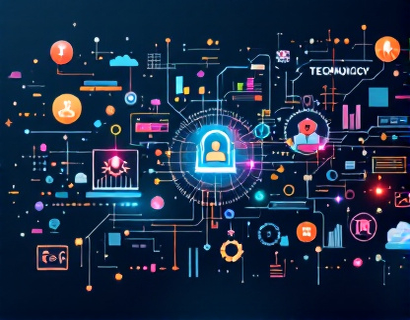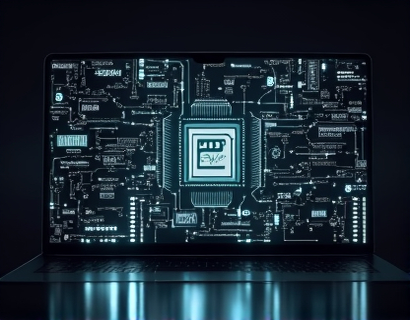Transforming Education with AI-Powered Chat Interfaces: Insights on Tokenization for All
In the rapidly evolving landscape of education, the integration of AI-powered chat interfaces represents a significant leap forward in how we access and understand complex topics such as tokenization. This technology not only simplifies intricate concepts but also makes them accessible and engaging for educators, students, and families alike. By leveraging advanced natural language processing and machine learning, these chat platforms provide verified insights and specialized knowledge, ensuring that users receive accurate and reliable information.
Understanding Tokenization: A Foundation for Educators
Tokenization, in the context of education and technology, refers to the process of breaking down information into smaller, manageable units or tokens. These tokens can represent words, phrases, or even more complex data structures, depending on the application. For educators, understanding tokenization is crucial as it forms the backbone of many modern educational technologies, including adaptive learning systems, natural language processing tools, and digital content management platforms.
Tokenization enables the creation of personalized learning experiences by analyzing and interpreting individual student interactions. By breaking down student performance data into tokens, educational software can identify patterns, strengths, and areas for improvement. This granular analysis allows educators to tailor their teaching methods and resources to better meet the needs of each student, fostering a more inclusive and effective learning environment.
Benefits for Students: Engaging with Tokenization
For students, the benefits of tokenization are manifold. By interacting with AI-powered chat interfaces, students can explore tokenization in a hands-on, interactive manner. These platforms can provide real-time feedback and explanations, making abstract concepts more concrete and understandable. For instance, a chat interface might break down a complex sentence into its constituent tokens, allowing students to see how each part contributes to the overall meaning.
Moreover, tokenization can enhance language learning by helping students grasp the structure and syntax of different languages. By tokenizing sentences and providing translations, students can better understand the nuances of language and improve their vocabulary and comprehension skills. This interactive approach not only makes learning more engaging but also more effective, as students can immediately apply their knowledge in practical scenarios.
Family Engagement: Tokenization for Parents and Caregivers
Tokenization is not just beneficial for educators and students; it also plays a vital role in engaging families in the educational process. Parents and caregivers can use AI-powered chat interfaces to gain insights into their children's learning progress and understand the technologies their children are using. By tokenizing educational data, these platforms can provide clear, actionable information that helps parents support their children's learning at home.
For example, a chat interface might break down a child's performance in a digital learning platform into tokens, highlighting areas where the child excels and areas that need improvement. This information can empower parents to have informed discussions with teachers and take proactive steps to enhance their child's learning experience. Additionally, tokenization can help demystify educational technologies, making it easier for families to navigate and support the use of these tools.
Ensuring Accuracy and Safety: Content Verification
One of the key advantages of using AI-powered chat interfaces for educational purposes is the emphasis on content verification. These platforms employ sophisticated algorithms to cross-reference information from multiple reliable sources, ensuring that the insights provided are accurate and up-to-date. This is particularly important in a field like tokenization, where misunderstandings can lead to misapplication and ineffective educational strategies.
To further enhance safety and reliability, many chat platforms offer child-friendly versions that are specifically designed for young users. These versions are rigorously tested to ensure that the content is appropriate, engaging, and free from harmful or inappropriate material. By providing a safe and controlled environment, these platforms allow children to explore complex topics like tokenization without risk.
Interactive Learning: Making Tokenization Accessible
Interactive learning is at the heart of AI-powered chat interfaces. These platforms use natural language understanding to engage users in conversations, making the learning process dynamic and personalized. For instance, a student might ask the chat interface to explain a specific tokenization technique, and the chat will respond with a step-by-step breakdown, accompanied by examples and visual aids.
This interactive approach not only helps students grasp difficult concepts but also encourages active learning and critical thinking. By asking follow-up questions and providing additional resources, the chat interface can adapt to the user's level of understanding, ensuring that the learning experience is both challenging and supportive.
Industry Insights: Tokenization in Education
The application of tokenization in education extends beyond individual learning experiences. Educational institutions and technology providers are increasingly adopting tokenization to optimize their operations and enhance student outcomes. By tokenizing data related to student performance, attendance, and engagement, these organizations can gain valuable insights that inform policy decisions and strategic planning.
For example, tokenization can help identify trends in student dropout rates by breaking down relevant data into actionable tokens. This analysis can reveal underlying factors contributing to dropout, such as lack of engagement or inadequate support services. Armed with these insights, institutions can implement targeted interventions to improve retention and overall student success.
Future-Proofing Education: The Role of AI Chat Interfaces
As technology continues to evolve, AI-powered chat interfaces will play an increasingly important role in shaping the future of education. These platforms not only make complex topics like tokenization more accessible but also foster a culture of lifelong learning and digital literacy. By providing reliable, future-focused information, chat interfaces equip educators, students, and families with the knowledge and tools needed to thrive in a rapidly changing world.
Moreover, the integration of AI chat interfaces in educational settings can help bridge the digital divide, ensuring that all students, regardless of their background, have access to high-quality learning resources. As these technologies become more prevalent, they have the potential to democratize education, creating a more equitable and inclusive learning environment for all.
Conclusion: Embracing the Potential of AI-Powered Chat Interfaces
In conclusion, AI-powered chat interfaces represent a transformative force in education, particularly in the realm of tokenization. By providing verified, interactive, and accessible insights, these platforms empower educators, students, and families to better understand and leverage the power of tokenization. As we move forward, it is essential to continue investing in and refining these technologies to ensure they meet the evolving needs of the educational community. With the right tools and support, we can create a future where learning is more personalized, engaging, and effective for everyone.










































